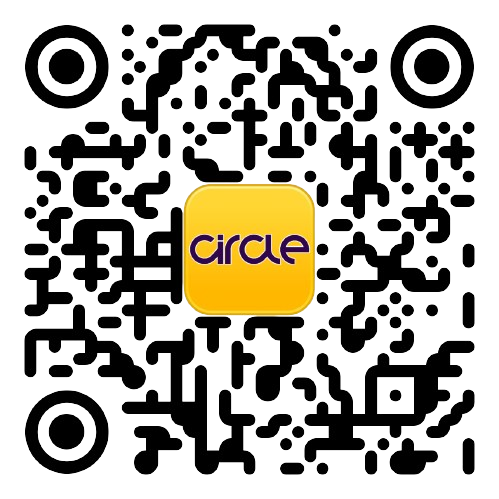Systematic Literature Review Analisis Kemampuan Gaya Kognitif Field Dependent dan Field Independent dari Hasil Belajar
DOI:
https://doi.org/10.28918/circle.v4i2.8213Keywords:
Cognitive Style, Field Dependent , Field Independent, Problem SolvingAbstract
This research aims to analyze field dependent (FD) and field independent (FI) cognitive style abilities based on learning outcomes through a systematic literature review. Education plays an important role in developing individual potential, where students' cognitive style is one of the determining factors in understanding concepts. Cognitive style refers to the way an individual receives, stores, processes, and presents information. The research method follows the systematic literature review (SLR) stages with a focus on three research questions: (1) educational levels that are often studied, (2) mathematical abilities that are measured, and (3) the influence of gender differences on cognitive styles and learning outcomes. Data was collected from Google Scholar and Mendeley with inclusion criteria from 2015 to 2024. The research results show that the education level most researched is Junior High School (SMP), with the main focus on mathematical problem solving abilities. Additionally, it was found that cognitive style and gender significantly influenced mathematical problem solving abilities, with female students showing advantages in mathematical communication and learning motivation. This research provides insight into the importance of understanding differences in cognitive styles in the learning process and their influence on learning outcomes, and emphasizes the need for teaching strategies that are tailored to students' cognitive needs.
References
Afifah, D. S. N., & Nafi’An, M. I. (2019). Analyzing of field independent and dependent students’ understanding in solving statistical problems based on ontosemiotic approach. Journal of Physics: Conference Series, 1321(2). https://doi.org/10.1088/1742-6596/1321/2/022100
Fadilah, & Rusdi. (2021). Kemampuan Pemecahan Masalah Matematis Siswa Berdasarkan Gender kelas VIII.6 MTsN 1 Padang Pariaman. Circle : Jurnal Pendidikan Matematika, 1(2).
Herliani, E. F., Wardono, E. F., & Waluya, S. B. (2023). Mathematical Literacy Seen from Cognitive Style in Learning of Auditory Intellectually Repetition Model with Constructivism Approach Assisted by Google Classroom. UJMER: Unnes Journal of Mathematics Education Research, 12(1), 12–18.
Habe, H., & Ahiruddin, A. (2017). Sistem Pendidikan Nasional. Ekombis Sains: Jurnal Ekonomi, Keuangan Dan Bisnis, 2(1), 39–45. https://doi.org/10.24967/ekombis.v2i1.48
Hayah, N., Mallo, B., & Murdiana, I. N. (2019). Profil Pemahaman Konsep Matematika Ditinjau Dari Gaya Kognitif Field Independent (Fi) Dan Field Dependent (Fd). Aksioma, 8(2), 137–150. https://doi.org/10.22487/aksioma.v8i2.210
Lesmana, I., Nengsih, R., & Satria, T. F. (2024). Pengaruh Model Pembelajaran Creative Problem Solving ( CPS ) Terhadap Hasil Belajar Matematika Siswa Kelas V SDN 19 Padang Sirih Kecamatan Ranah Pesisir Kabupaten Pesisir Selatan. Jurnal Pendidikan Tambusai, 8(1), 890–895.
Lestari, S. D., Sumarni, S., & Riyadi, M. (2022). Kemampuan Pemecahan Masalah Matematis Siswa Smk Ditinjau Dari Gaya Kognitif Field Independent Dan Field Dependent. RANGE: Jurnal Pendidikan Matematika, 3(2), 113–128. https://doi.org/10.32938/jpm.v3i2.1937
Murtafiah, M., & Amin, N. (2018). Pengaruh Gaya Kognitif Dan Gender Terhadap Kemampuan Pemecahan Masalah Matematika. Jurnal Penelitian Dan Pembelajaran Matematika, 11(1). https://doi.org/10.30870/jppm.v11i1.2986
Prawita, B. N., Amrullah, A., Salsabila, N. H., & Hayati, L. (2022). Analisis Kemampuan Komunikasi Matematis Ditinjau dari Gaya Kognitif pada Siswa SMP-IT Yarsi Mataram. Griya Journal of Mathematics Education and Application, 2(2), 335–343. https://doi.org/10.29303/griya.v2i2.180
Putri, A. B., Utomo, D. P., & Azmi, R. D. (2023). Junior High School Students’ Conceptual Understanding of Prerequisite Material in Solving SPLDV Questions in View of Students’ Cognitive Style. MEJ : Mathematics Education Journal, 7(2), 264–279. https://doi.org/10.22219/mej.v7i2.25860
Saadati, N. A. (2022). Pengaruh Usia Masuk Sekolah Terhadap Kecerdasan Kognitif. Prosiding HIMIE Economics Research and Olympiad (HERO), 1(1), 79–84. Retrieved from https://prosiding.umy.ac.id/hero/index.php/hero/article/view/12
Septiyana, W., Zarista, R. H., & Hasanah, R. (2023). Analysis of Algebra Communication Skills and Creative Thinking Skill Levels: In Terms of Cognitive Style. AlphaMath : Journal of Mathematics Education, 9(1), 42. https://doi.org/10.30595/alphamath.v9i1.15950
Setiawan, A., Degeng, İ., Sa’dijah, C., & Praherdhiono, H. (2020). The Effect Of Collaborative Problem Solving Strategies And Cognitive Style On Students’ Problem Solving Abilities. Journal for the Education of Gifted Young Scientists, 8(4), 1618–1630. https://doi.org/10.17478/jegys.812781
Afifah, Soro, & Faradillah. (2022). Mathematic Reasoning Ability Based on Cognitive Style Field Dependent, Field Intermediate, and Field Independent. Jurnal Pendidikan MIPA, 23(2), 207–221. http://dx.doi.org/10.23960/jpmipa/v23i2.pp880-893
M. Akbar, Sa'dijah, & Sisworo. (2020). Profil Siswa dalam Memecahkan Masalah Matematika Berdasarkan Gaya Kognitif dan Gender. Jurnal Kajian Pembelajaran Matematika, 4(1), http://dx.doi.org/10.17977/um076v4i12020p27-39
Sutama, S., Anif, S., Prayitno, H. J., Narimo, S., Fuadi, D., Sari, D. P., & Adnan, M. (2021). Metacognition of Junior High School Students in Mathematics Problem Solving Based on Cognitive Style. Asian Journal of University Education, 17(1), 134–144. https://doi.org/10.24191/ajue.v17i1.12604
Downloads
Published
How to Cite
Issue
Section
License
Copyright (c) 2024 Silky achilla, Masrukan, Iqbal Kharisudin, Zaenuri, Walid

This work is licensed under a Creative Commons Attribution-ShareAlike 4.0 International License.










